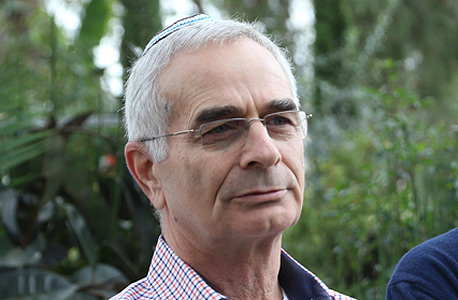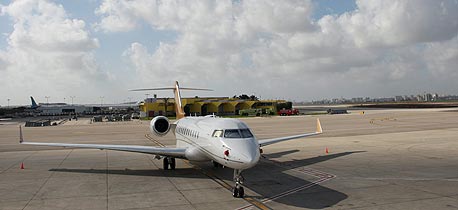Friendly adversaries: How Israelis secretly helped build up the UAE’s military capabilities
Companies like Aeronautics and Logic, took part in the Gulf State's biggest defense projects all while keeping an extremely low profile
15:2018.08.20
High salaries, special flights on private jets, alongside a demand for strict confidentiality that forced Israelis to make phone calls to home from out at sea, where no one could hear them talking to their families in Hebrew. Such was the life of the Israelis who for the past decade have had a major hand in building the UAE’s security infrastructure.
As early as 2009, was when Israeli UAV manufacturer Aeronautics Ltd., then headed by Avi Leumi, first signed a deal to sell its Dominator drones to Abu Dhabi. It was just the appetizer: in collaboration with Italian company Piaggio Aerospace, the Israeli company offered to sell the Arab country a giant UAV based on an Italian-made manned aircraft, in a project worth $500 million, dubbed “Sea Wolf.” The planned deal had even drawn investments from VC funds like Viola Ventures and KCPS.

Former Aeronautics CEO Avi Leumiצילום: Aeronautics
Despite the lavish settings, it wasn’t an easy or alluring life for them. The young employees, mostly in their late twenties and early thirties, some of them family men, faced difficulty maintaining contact with home. They were forbidden to speak to their families in Hebrew for fear of exposing themselves, so in order to bypass the prohibition, they’d enter the sea with phones wrapped in nylons, move a distance away from the coast and then dial Israel to speak to their wives and children. Despite the inconveniences, however, Aeronautics had no difficulty recruiting team members for the project by offering generous salaries.
The trouble was that contrary to Leumi’s promises, the Ministry of Defense did not approve the Israeli involvement in the development and delivery of the giant drone to the Gulf state. A plane that arrived from Italy to be converted for unmanned flight remained parked for many years in an Israeli landing strip. After Leumi was fired from the company, his successor was surprised to find a letter of commitment sent by Leumi to Abu Dhabi confirming that the company owed the state $18 million paid to it as an advance on the project, a debt that accompanied the company for many years until it was paid off. The Italians ended up completing the deal with other partners, but it was not a success.
The unfortunate turn of events did not prevent Aeronautics from taking another bite of the UAE apple. After Leumi’s departure, he maintained his ties in the Gulf and linked the company to another deal for the purchase of Orbiter drones by Abu Dhabi. This one, worth $20 million did go through.

AMos Malka. Photo: Tzvika Tishlerצילום: צביקה טישלר
Related articles

A private jet on the tarmac of Ben Gurion International Airport. Photo: Amit Shaalצילום: עמית שעל
Some of the big Israeli defense contractors tried to enter the UAE market through Logic’s projects. Rafael Advanced Defense Systems Ltd. tried to get its Proctor unmanned patrol boats into the UAE coastal defense project, but the deal was not completed.



